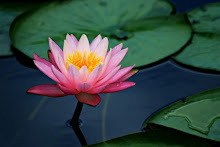For years i have been trying to find hints through different texts and documents as well as different modern practices of what might be called "authentic Yoga", "THE Yoga". I realise now I had been entirely missing the point. There is no such thing as "true yoga", "authentic yoga" or whatever other derivate. Quite frankly, there is no one who can say exactly what yoga is!(anyone who pretends otherwise has just not read or pondered enough on this). There is not one yoga, but a multitude: as many practitionners, as many types of yoga. We are all forging our own yoga no matter what anyone thinks or says. There are no immutable principles. There are some who take a few ideas/affirmations and turn them into axioms. I'm not saying this is bad. On the contrary. Whether we like it or not, whether we're conscious of it or not, we are practicing while having adhered to a particular way of thinking. So one might better be conscious of it. I'm just saying that, while having been trained in a certain school (and obviously, they all think they have it right, even if they are denying it - why would one practice something if one thought there was something better out there?), we take on bord what is given to us and adhere to it and tend to see everything else as deviations from the true path. If one cannot see the validity of other approaches- or to look at it from a diffrent angle, the relativity of one's own approach - then one has most probably been brainwashed.
Here's an interesting passage taken from "Yoga in Modern India" (p. 19) by Alter, which might illustrate some of the points I've made earlier:
[the author mentions the orientalist who tend - and not only them mind you - to look at classical texts dealing with Yoga and consider thel "gold standard" in order to measure the authenticity of various kinds of practice]: "What else counts as an authoritative text, and on what basis are different texts ranked in terms of relative importance? How are they to be compared one with another if your point of reference is not the corpus itself but modern practice? The most obvious answer to these questions is to be somewhat restrictive and judiciously limit the scope to what are regarded as the primary texts [based on what? - my remark] - the Yoga Sûtra, the Yoga Upanisads, the Bhagavad Gîtâ, and the three mais Hatha Yoga texts of more recent, medieval antiquity, the Hathayogapradîpikâ, the Sivasamhitâ and the Gherandasamhitâ. But this presents problems, since in these texts Yoga blurs into Samkhya, Tantra, and the "cult of Krsna" among other forms of practice, systems of religious thought, and philosophical reasoning."
The differences in philosophies, in the forms of yoga, in the religious environment are far more drastic in reality than this passage suggests. This is why I'm saying that there's simply no point in looking for THE yoga (and judging others based on what one thinks Yoga is), but for what suits one best.
Subscribe to:
Post Comments (Atom)

No comments:
Post a Comment